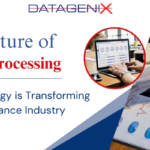Claims Software Systems: The Future of Smart Claims Handling
April 23, 2025
In the fast-paced world of insurance, the ability to process claims quickly and accurately is crucial. With advancements in artificial intelligence (AI) technology, insurers now have the opportunity to revolutionize their claims processing workflows. By integrating AI into claims software, insurers can automate repetitive tasks, improve decision-making processes, and deliver faster, smarter claims processing. In this comprehensive guide, we’ll explore the benefits and implications of AI integration in claims software, and how it’s driving transformative change in the insurance industry.
The Role of AI in Claims Software
Artificial intelligence encompasses a range of technologies, including machine learning, natural language processing, and computer vision, which enable machines to mimic human-like intelligence and behavior. When integrated into claims software, AI algorithms can analyze vast amounts of data, identify patterns, and make predictions, enabling insurers to streamline claims processing and enhance efficiency.
Key Components and Functionalities
Automated Claims Intake and Triage
AI-powered claims software can automatically intake and triage incoming claims based on predefined criteria. Natural language processing algorithms analyze claim documents and extract relevant information, such as policy details and incident descriptions, facilitating faster and more accurate claim routing.
Predictive Analytics for Claim Assessment
Machine learning algorithms enable predictive analytics within claims software, allowing insurers to assess claim severity, estimate claim costs, and predict claim outcomes. By analyzing historical data and identifying patterns, AI algorithms can provide valuable insights to claims adjusters, helping them make more informed decisions and prioritize high-risk claims.
Fraud Detection and Prevention
AI algorithms can significantly enhance fraud detection and prevention capabilities within claims software. By analyzing various data points, such as claimant behavior, transaction patterns, and historical claims data, machine learning models can identify suspicious claims and flag them for further investigation. This proactive approach to fraud detection helps insurers minimize losses and protect against fraudulent activity.
Claims Processing Automation
AI integration enables claims processing automation, reducing the need for manual intervention and accelerating claim resolution times. Robotic process automation (RPA) technologies can automate repetitive tasks, such as data entry, document processing, and claims routing, allowing claims adjusters to focus on more complex and value-added activities.
Personalized Customer Interactions
AI-powered chatbots and virtual assistants can provide personalized customer support and assistance throughout the claims process. By leveraging natural language understanding and machine learning capabilities, these virtual agents can answer policyholder inquiries, provide status updates on claims, and guide customers through the claims submission process, enhancing overall customer satisfaction.
Continuous Improvement through Feedback Loops
AI integration enables continuous improvement through feedback loops and iterative learning. Machine learning algorithms can analyze claim outcomes and adjust their models accordingly, improving accuracy and efficiency over time. By leveraging insights from past claims, insurers can refine their AI models and optimize their claims processing workflows for better performance.
Benefits of AI Integration in Claims Software
Faster Claim Processing Times
AI-powered claims software accelerates claim processing times by automating manual tasks, prioritizing high-risk claims, and streamlining workflows. Insurers can reduce cycle times and improve service levels, leading to faster claim resolutions and increased customer satisfaction.
Improved Accuracy and Decision Making
AI algorithms enhance the accuracy of claims assessments and decision-making processes by analyzing large volumes of data and identifying relevant patterns and trends. Claims adjusters can make more informed decisions based on predictive insights, resulting in better outcomes for both insurers and policyholders.
Enhanced Fraud Detection and Prevention
AI integration strengthens fraud detection and prevention capabilities within claims software, enabling insurers to identify and mitigate fraudulent activity more effectively. By proactively detecting suspicious claims, insurers can reduce losses and protect their bottom line while maintaining trust and integrity within the insurance ecosystem.
Cost Savings and Operational Efficiency
Automating repetitive tasks and streamlining workflows through AI integration leads to significant cost savings and operational efficiency gains for insurers. Claims adjusters can focus their time and resources on value-added activities, such as complex claims assessment and customer interaction, while AI handles routine tasks with speed and accuracy.
Personalized Customer Experiences
AI-powered virtual assistants and chatbots provide personalized customer support and assistance, enhancing the overall claims experience for policyholders. By offering timely and relevant guidance throughout the claims process, insurers can improve customer satisfaction and loyalty, leading to increased retention and lifetime value.
Scalability and Adaptability
AI-powered claims software is highly scalable and adaptable, allowing insurers to handle fluctuations in claim volume and respond to changing market dynamics effectively. As claim volumes increase or new data sources emerge, AI algorithms can scale up to meet demand and adapt their models accordingly, ensuring continued performance and reliability.
Future Trends and Implications
Advancements in Natural Language Processing (NLP)
Continued advancements in natural language processing technology will enable AI-powered claims software to understand and interpret unstructured data more effectively. This will enhance the accuracy and efficiency of claims intake, assessment, and customer interactions, further improving overall claims processing workflows.
Integration with IoT and Telematics Data
Integration with the Internet of Things (IoT) and telematics data sources will provide insurers with additional insights into claim events and risk factors. By combining AI-driven analytics with real-time IoT data, insurers can better assess risk, prevent losses, and offer personalized insurance products and services tailored to individual policyholders.
Ethical and Regulatory Considerations
As AI integration becomes more widespread in claims software, insurers must consider ethical and regulatory implications related to data privacy, transparency, and fairness. Transparent AI models and explainable decision-making processes will be essential to building trust and maintaining compliance with regulatory requirements.
Collaboration and Partnerships
Collaboration and partnerships between insurers, technology providers, and regulatory agencies will play a key role in driving the adoption of AI-powered claims software. By working together to develop standards, best practices, and industry guidelines, stakeholders can foster innovation and ensure the responsible and ethical use of AI in claims processing.
Conclusion
AI integration in claims software is driving transformative change in the insurance industry. By utilizing AI-powered analytics, insurers can automate tasks, improve decision-making processes, and enhance customer experiences, leading to significant cost savings and operational efficiency gains. Insurers must adapt their claims processing workflows to remain competitive in the dynamic insurance market. Through AI integration, insurers can unlock new opportunities, deliver value to stakeholders, and accomplish positive outcomes.
How Health Claims Management Software Transforming The Industry?
February 7, 2025How Claims Software Can Transform Your Claims Process?
January 29, 2025The Need For Healthcare Claims Management Software
January 13, 2025Reasons You Should Invest in Claims Management Software
January 7, 2025The Essential Guide To TPA Software Features & Benefits
December 24, 2024Claims Management Software: Key To Streamlining Your Business
December 18, 2024How TPA Software Solutions Transformed Medical Claims Management?
November 20, 2024









